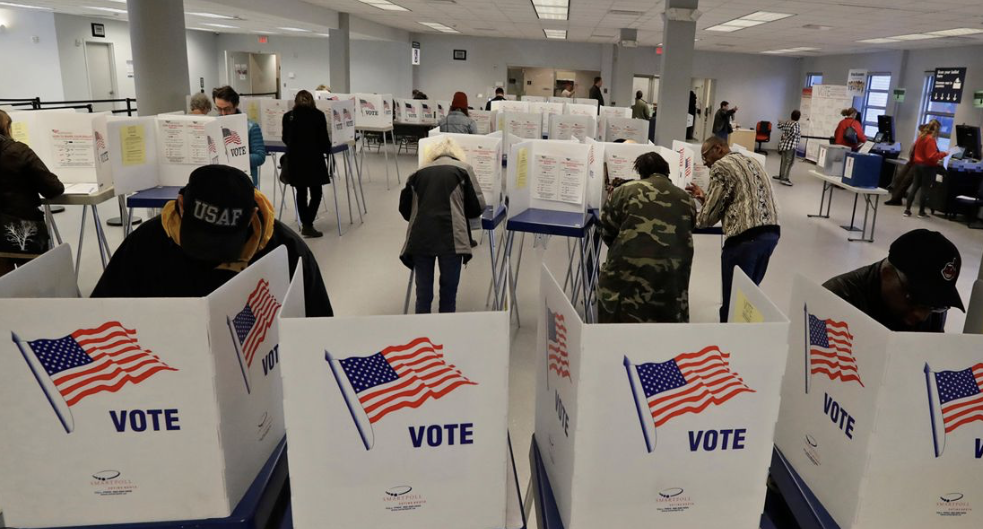Walk into most high school classrooms during election season, and you’ll notice something peculiar: the careful dance teachers perform around anything that might spark debate. Climate change gets reduced to recycling tips. Historical injustices are mentioned in passing with clinical detachment. Current events are sanitized into bland “both sides” presentations that say nothing meaningful about anything. We’ve created educational environments so terrified of controversy that we’re graduating students who can’t engage with the very issues they’ll inherit.
This isn’t just about politics; it’s about our fundamental failure to prepare young people for a democracy that requires active, informed participation. When national politics feels more personal than ever, when every policy decision seems to cut straight to questions of identity and values, our schools are responding with silence instead of preparation. But in trying to protect students from difficult conversations, we’re actually leaving them defenseless against a world that won’t offer them the same courtesy.
Many schools have interpreted “neutrality” to mean complete withdrawal from any topic that might generate disagreement, because they want to avoid sticky legal situations. An Education Week survey found that “32 percent of the teachers said they felt pressures to avoid potentially controversial topics, including politics, slavery, gender, religion, ethnicity and race, sexual orientation, the Holocaust, and sexual education. Their reasons include concern about legal consequences, how their supervisors or administrators would react, or because their supervisors or administrators warned them not to discuss those topics.” The result is an education that feels disconnected from the world students actually inhabit, one where they see politicians fight on their phones while their classrooms pretend issues don’t exist, despite the status quo’s political climate being more dangerous than ever. This approach fundamentally restricts the civic engagement required of students once they reach voting status.. Democracy doesn’t function when citizens can’t disagree constructively, when they’ve never learned to examine evidence, challenge assumptions, or find common ground across different perspectives. These skills aren’t innate, they are actually learned through practice. And if students don’t get that practice in school, where exactly are they supposed to develop these capabilities?
Consider what we’re asking of eighteen-year-olds: we want them to vote responsibly on complex ballot measures, engage meaningfully with candidates’ positions, and participate in community decision-making. Yet we’ve spent their entire educational career shielding them from the very processes these activities require. It’s like teaching someone to swim by keeping them away from water. Unlike common misconceptions, teaching students about the world around them isn’t indoctrination, rather it’s teaching them true, unedited facts so that they can form authentic opinions.
The irony is prominent given how personally political issues affect today’s students. They’re given a planet facing a climate crisis, entering an economy defined by inequality, and growing up in communities grappling with questions about identity, justice, and belonging. Some educators worry that addressing controversial topics will expose students to viewpoints that conflict with their families’ values or drag classrooms into partisan battles. These concerns aren’t unreasonable, but they miss a crucial distinction between indoctrination and education. Teaching students to analyze different perspectives on immigration policy isn’t the same as telling them what to think about it. Examining the historical context of voting rights isn’t partisan. It’s a necessary background for understanding current debates.
The most effective civic education doesn’t avoid controversy, rather it uses controversy as a teaching tool. Students learn critical thinking by practicing it on real issues that matter to them. They develop empathy by engaging seriously with perspectives different from their own. They build confidence in their ability to navigate complex information by doing exactly that in supervised, educational settings. Schools that have embraced this approach report remarkable results. Students become more engaged with their learning when they see its connection to their lives. They develop stronger analytical skills when they practice on genuine debates rather than artificial scenarios. Most importantly, they gain confidence in their ability to participate meaningfully in democratic processes.
Our students deserve better than educational institutions that pretend the world’s most pressing issues don’t exist. Because ultimately, the biggest disservice we can do to young people isn’t exposing them to controversy, it’s sending them into a contentious world completely unprepared for what they’ll find there. The path forward requires courage from administrators, support for teachers, and recognition from communities that preparing students for citizenship sometimes means making individuals uncomfortable. It means acknowledging that in a diverse country with a diverse democracy, learning to engage respectfully with disagreement isn’t just useful, it’s essential. It teaches us that we can disagree.

